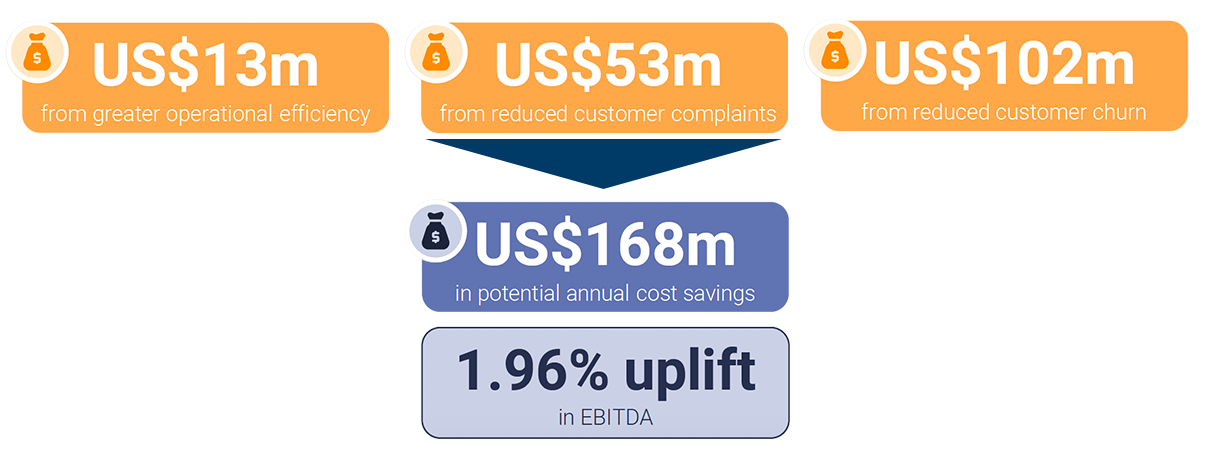- Product
Product
MATRIXX PlatformCommercial Benefits
Rapid Commercial InnovationCustomer-Centric SolutionsUnified, Real-Time RevenueDynamic Operational FlexibilityTechnical Benefits
High Performance Core5G CHF | CCS ArchitectureAPI-FirstClick-Not-CodeTrue Cloud NativeUnified Commerce- Opportunities
Market Segments
ConsumersSmall and Medium EnterpriseLarge EnterpriseGovernment NetworksPrivate Cellular NetworksWholesale- Customers
Overview
Success HighlightsBusiness Case Studies
DISH - Standalone 5GLiberty Latin America - Group TransformationOrange Romania - Rapid Brand InnovationTelefónica - Converged ChargingTPG Telecom - Multi-Brand StrategySuccess Stories
iD MobileOne NZ - ConsumerOne NZ - EnterpriseOrange PolandStarHubSwisscomTata CommunicationsTelstra- Partners
Be A Partner
Partner Program OverviewPartner Resources
Education & TrainingStrategic Initiatives
Blue Planet | Dynamic Monetization of 5GGoogle | Confidential ComputeIBM | Telco Cloud PartnershipMicrosoft and Blue Planet | Monetize 5G ExperiencesRed Hat OpenShift | Hybrid CloudSalesforce | Digital ExperiencesPartner Case Studies
AWS CI/CD Pipeline- Resources
Events & Webinars
Register ITW 2024: Join CTO Marc Price for a panel discussion on AI disruption, May 15thWebinars On-Demand- Company
Why Legacy Billing Restricts Telco Growth
Paul GainhamFeb 16, 2024 DIGITAL TRANSFORMATIONTo capture the business challenges caused by legacy billing approaches and highlight the fallacy of billing consolidation as a cure, MATRIXX Software commissioned research from STL Partners to review the commercial and operational challenges that telcos are grappling with. This assessment examines how a new, modern alternative to classic revenue management approaches could deliver significant, quantifiable benefits.
For a typical Tier-1 telco, a new approach to monetization can unlock several annual cost savings:

The Fallacy of Billing Consolidation
Every unexpected charge, billing error and confusing invoice erodes customers’ trust and increases the risk of churn. For too long, legacy billing processes have acted as a drag on telcos’ financial performance, limiting agility and driving up the cost of revenue management, becoming a major contributor to customer dissatisfaction. Billing consolidation projects, while giving the impression of positive change, simply address the symptoms, NOT the underlying causes of fundamentally broken billing processes.
The impact of those broken processes on customer satisfaction and the operational costs to telcos cannot be underestimated. As an example, it is estimated that approximately 50% of all calls to telco call centers are bill-related, costing a typical telco around $60m per year.
Some may believe that cost has been reduced through automation and the use of call center AI systems and bots, but that misses the fundamental point. Customers are still dissatisfied, and, to the earlier point, curing the symptom and NOT the root cause will not mitigate that fundamental business risk.
That dissatisfaction, if not addressed correctly, could ultimately lead to customers churning to a competitive operator. While not all churn can be attributed to billing issues alone, it clearly plays a significant role in overall customer dissatisfaction. For a typical telco, the cost of customer acquisition can be 5-6x that of customer retention, eating heavily into the lifetime margin of that customer and a salient reminder of why customer satisfaction and retention are crucial.
Another major drag on telco growth caused by legacy billing is product time-to-market. Ever increasing competition makes it paramount for telcos to be agile in both first-mover opportunities as well as reacting quickly to market shifts. Too often, legacy billing processes have reduced those reaction times to a glacial pace, resulting in missed opportunity and a high sunk cost of development that is ultimately lost.
Indeed, one study revealed that over 65% of product initiatives have been delayed or had their scope limited due to inflexible legacy billing systems. Extended product development times can even lead to the decision not to launch the product at all once the opportunity is deemed to have been missed.
Reducing the complexity and cost of revenue management and turning it from an operational drag into an engine of growth is a clear strategic imperative for all telcos; however, that will only be achieved by a radical re-think and overhaul of current processes and systems. Continuing to do the same thing and expecting different results is a path to continued business shortcomings.
A new tactic, one that re-engineers the underlying legacy billing processes into a modern, digital monetization approach that removes the silos, shatters the complexity of and, crucially, significantly reduces the high cost of those processes, becomes a necessity.
MATRIXX Digital Monetization
MATRIXX digital monetization unifies charging and rating, offline and online, for usage and non-usage charges for all customer types (B2C, B2B, wholesale and IoT) and all payment models (usage, recurring, subscription and contract). It overcomes the limitations of traditional billing models, which rely heavily on siloed systems that require endless development and costly integration, unsuited to the pace of change and the drive for innovation and growth in the digital era. MATRIXX digital monetization forms the heart of a new end-to-end digital value chain, from onboarding to digital payments, where transparency, accuracy and trust become the new bywords of telco revenue management.
It’s time to put growth back on the agenda.
The STL Partners briefing paper ‘Why Legacy Billing Restricts Telco Growth’ can be downloaded here.
Pin It on Pinterest
- Opportunities
